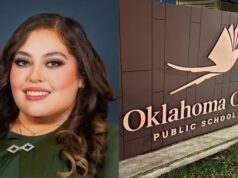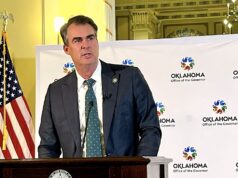
As a new school year begins and kids go back to school, I’d like to offer some unsolicited advice to the Oklahoma City Public School System. Before doing so, I’ll admit to missing the classroom. (After 18 years in the OKCPS, I retired from full-time teaching in 2010. I retired from part-time teaching a year ago.) On the other hand, I’m too old to teach for a full year.
And that brings me to a policy statement that is usually considered heresy: Most OKCPS teachers aren’t in their 60s, but it’s a long haul toward June. We can’t continue to demand so much of educators. Teachers are praised as heroes and then treated as disposable. Especially in the inner city, schooling must become a team effort.
I’ve thought long and hard on this before recommending two interconnected Ps:
- partnerships, and a
- priorities discussion.
I hope the OKCPS will discuss a new set of priorities. I hope it will listen to the case for making partnerships our district’s new priority.
Three replies
My suggestion often prompts three replies. First, a standard response is, “No! It’s about the kids!” The suggestion that we must shift gears and provide supports for students and educators (who are often derided as “adult interests”) has long been dismissed as an “excuse” for the failure to do “whatever it takes.” Second, we have been in an era when an unflinching focus on academics and holding individuals accountable for measurable gains in student “performance” has been the priority.
Also, many will correctly reply that the OKCPS has benefited from many local partners. When the state fails to provide essential funding, volunteers and nonprofits step up and help fill the gap. But, OKC needs a different type of partnership, modeled after MAPS for Kids, where a full range of stakeholders engage in an evidence-based conversation about policy priorities. Under today’s partnership model, there is a firewall between partners and discussions about priorities. The school system draws up the game plan, and outsiders decide how they want to help.
Since No Child Left Behind, the fundamental assumption has been that better instruction, principal leadership, data, accountability and “High Expectations!” must drive school improvement. That ideology has produced disappointing results, at best. Usually, it has been an unmitigated failure. Even districts facing smaller challenges, with double or more of Oklahoma’s per student funding, have mostly wasted the billions of additional dollars since NCLB. And that doesn’t even count the energy of educators who have had to implement this simplistic game plan. In Oklahoma City, especially, teachers and principals have been rode hard and put away wet.
My new priority would be full-service community schools that team up with groups such as the United Way, the YMCA, Boys and Girls Clubs, parent groups like the PTA, CareerTech, community colleges and universities. These partnerships are designed to produce a multiplier effect that helps existing programs become more efficient and better support high-needs youth.
Take cues from successes, failures elsewhere
I would love to see OKC borrow from the Strive Partnership of Cincinnati-Northern Kentucky, which embraces “shared accountability.” It is a partnership of more than 300 civic groups, businesses, nonprofits, colleges, public agencies and philanthropies. Strive “coordinates every service and support that children and adolescents need, at every stage of their education and development.”
I expect, however, that the OKCPS would still need to note the experience of New York City, which is now embracing community schools. Reformers whose entire careers have been molded by instruction-driven, competition-driven reform are pushing back. Even though community schools yield better results in terms of attendance, graduation and, probably, long-term health, they take a while before increasing academic outcomes. Arguing that our kids don’t have time for such interventions, many true believers in accountability-driven, data-driven policies have actively undercut NYC school partnerships.
For that reason, I’d urge the OKCPS to emulate Say Yes to Education Buffalo. The stakeholders in Buffalo, N.Y., were divided as much as we are. Knowing that it was the district’s last chance, anti-union reformers joined with the American Federation of Teachers, business and nonprofit partners, and they listened to the community.
When surveys showed that the patrons placed a higher priority on mental health than academics, the district adjusted its priorities. Now, 52 of 59 schools provide in-school mental health services. And that was just one example of the changes that were required. As Will Keresztes, Buffalo’s chief of intergovernmental affairs and a former interim superintendent learned, public school systems:
… see the education of children as being proprietary. When you bring other people in, you believe, mistakenly, that you’re giving up some kind of necessary power. So public school districts are hesitant to … make decisions collaboratively with institutions outside of their orbit. That’s how they’re wired.
Rewire the OKCPS
So, let’s put aside the blame game and rewire the OKCPS. If we have an honest public discussion, I suspect that partners will develop a better appreciation of why the district has been leery about the collaboration required to provide wraparound services. For instance, it takes a lot of work for schools to vet social service providers in order to protect students. If principals are tasked with organizing providers into an education-support team, that will require the system to take other, worthwhile responsibilities off their plates.
All I ask for is the opportunity to make the case to potential OKCPS partners that we change priorities. If Oklahoma City decides not to prioritize community schools, I can live with that. What I don’t believe we can live with is continuing down the same path, pretending that better outcomes will result if we just “put kids first.” The patrons should be allowed to choose whether job No. 1 should be working together to provide the trusting and loving relationships that are the foundation on which academic success must be built.





















